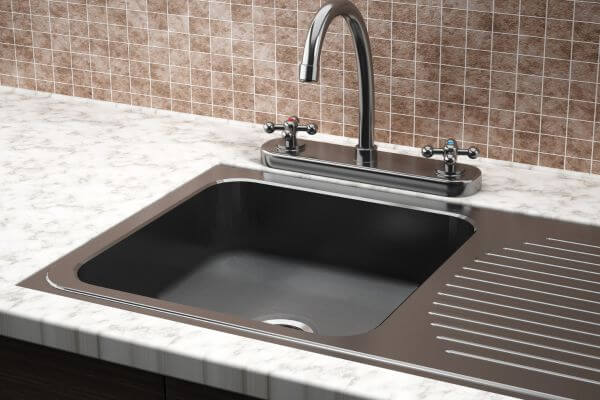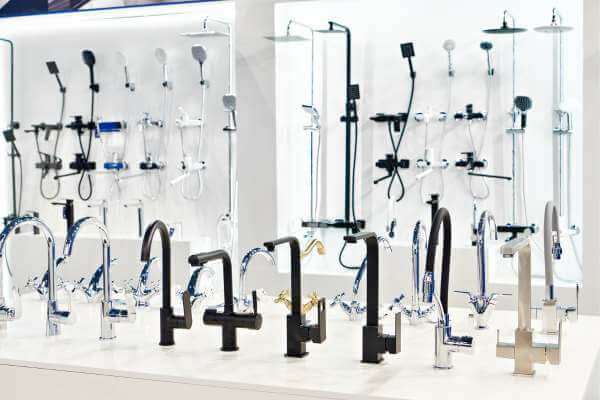If you are planning to install or replace a faucet in your kitchen or bathroom sink, you may have come across the term “deck plate” and wondered what it is and what it does. It, also known as a base plate, escutcheon, or flange, is a flat piece of metal or plastic that covers the hole in the sink where the faucet is mounted. It has several functions and benefits that make it an important accessory for your faucet.
Here are the Benefits of a Deck Plate

To cover unused holes
Depending on the type and design of your sink, it may have one, two, three, or four holes for the faucet and other accessories, such as a soap dispenser or a sprayer. However, not all faucets require the same number of holes. For example, a single-hole faucet only needs one hole, while a widespread faucet needs three holes. If you have more holes than you need, you can use a deck plate to cover the unused ones and give your sink a cleaner and more uniform look. A deck plate can also hide any damage or stains around the hole that may affect the appearance of your sink.
To provide stability
A deck plate can also help to secure and stabilize your faucet, especially if you have a thin or lightweight sink material, such as stainless steel or plastic. It can distribute the weight and pressure of the faucet evenly across the sink surface and prevent it from wobbling or shifting. It can also protect your sink from scratches or dents caused by the faucet installation or use.
To match your style
A deck plate can also enhance the aesthetic appeal of your faucet and sink by adding a touch of style and elegance. Deck plates come in various shapes, sizes, colors, and finishes to suit different types of faucets and sinks. You can choose one that matches or contrasts with your faucet and sink to create a harmonious or striking look. For example, you can choose a round or square one to complement the shape of your faucet, or a chrome or brushed nickel to match the finish of your faucet.
How to Choose and Install a Deck Plate for Your Faucet?
If you decide to use a deck plate for your faucet, there are some factors that you need to consider before buying and installing one. Here are some tips on how to choose and install one in your kitchen
Measure the size of the hole and the thickness of the sink
You need to measure the diameter of the hole in your sink where the faucet will be installed, as well as the thickness of the sink material. This will help you find a deck plate that fits snugly and securely over the hole and does not leave any gaps or overlaps. You can use a tape measure or a ruler to take these measurements.
Choose the right type of deck plate
You need to choose a deck plate that matches the type and configuration of your faucet. Different faucets have different mounting options, such as single-hole, center set, widespread, wall-mounted, or bridge. You need to find out what kind of faucet you have or want to buy and look for a compatible deck plate. For example, if you have a single-hole faucet, you need a single-hole deck plate; if you have a widespread faucet, you need a three-hole deck plate. You can check the product description or manual of your faucet to find out its mounting type.
Choose the right style and finish

You also need to choose a deck plate that suits your personal preference and taste. Deck plates come in various shapes, such as round, square, oval, or rectangular; sizes, such as small, medium, or large; colors, such as white, black, bronze, or copper; and finishes, such as chrome, brushed nickel, oil-rubbed bronze, or matte black. You can choose one that matches or contrasts with your faucet and sink to create your desired look.
Install the deck plate according to the instructions
Once you have chosen your deck plate, you need to install it according to the instructions provided by the manufacturer. Generally, installing a deck plate involves placing it over the hole in your sink and aligning it with the faucet base. Then, you need to secure it with screws or nuts from underneath the sink using a screwdriver or wrench. Finally, you need to install your faucet on top of the deck plate following its own instructions.
Is a faucet deck plate necessary?
Kitchen faucets offer two installation options: with or without a deck plate. This deck plate serves as a single mounting unit, housing both the faucet spout and handles. These units are designed to conceal up to three holes in your sink. In other words, you can choose to install your kitchen faucet with or without this deck plate, which combines the faucet’s spout and handles into a single mounting component.
Do you have to use the deck plate on a single-hole faucet?
If your sink has a solitary opening, you have the flexibility to choose any kitchen faucet designed for a single-hole installation. While certain faucets may include an escutcheon (base) plate, it’s important to note that its use is optional and not mandatory for faucet installation.
Are faucet deck plates universal?
Faucet deck plates are not necessarily universal, as they may vary in size, shape, color, and finish depending on the type and design of the faucet and sink. However, some of them are designed to fit most single-hole kitchen and bathroom faucets, such as the universal deck plate from American Standard. These deck plates can cover unused holes in a 3-hole sink or countertop configuration and match the style and finish of the faucet. To find out if a faucet deck plate is universal or compatible with your faucet and sink, you should check the product description or manual of the faucet and the deck plate, or consult with a professional plumber. You should also measure the diameter and thickness of the hole in your sink where the faucet will be installed.
Conclusion
A deck plate is a useful accessory for your faucet that can cover unused holes in your sink, provide stability for your faucet, and match your style preferences. If you want to use a deck plate for your faucet, you need to measure the size of the hole and thickness of the sink in your kitchen or bathroom; choose the right type,


 Hi, my name is Debra Klein and I love modern kitchen designs! As a product reviewer, it’s my mission to help homeowners choose the right modern kitchen accessories for their homes. I want to give them the best solution possible so they can make the best decision for their needs. Thanks for reading!
Hi, my name is Debra Klein and I love modern kitchen designs! As a product reviewer, it’s my mission to help homeowners choose the right modern kitchen accessories for their homes. I want to give them the best solution possible so they can make the best decision for their needs. Thanks for reading!




